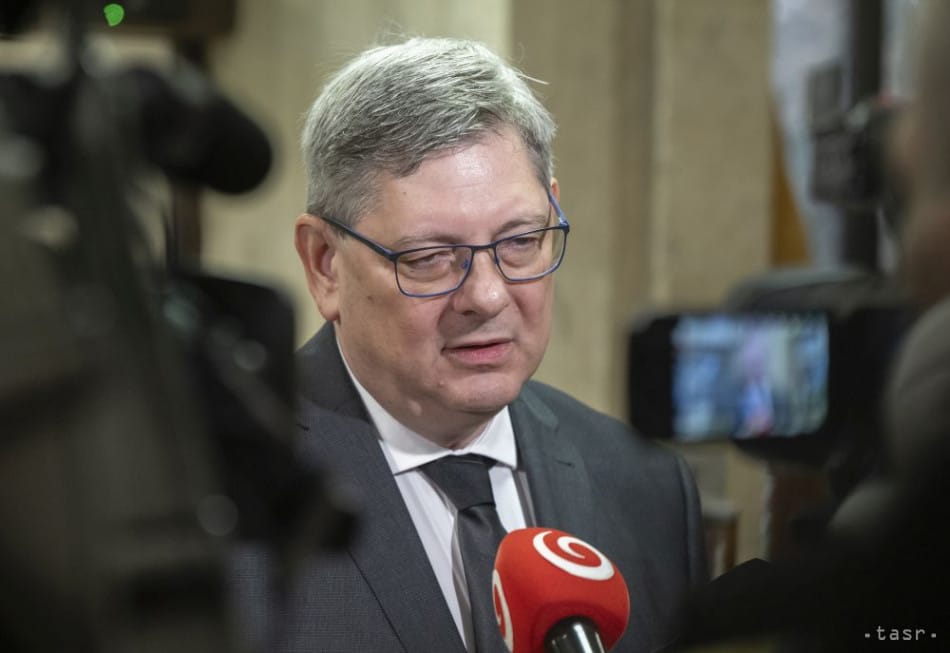Justice Minister Susko Rejects Criticism from Opposition

Bratislava, 7 August (TASR) – Justice Minister Boris Susko (Smer-SD) stated he had intended to take part in Thursday's special emergency session of the House Constitutional and Legal Affairs Committee and pointed out that he came to Parliament, but the committee failed to reach a quorum.
Speaking at a press conference held in Parliament, Susko dismissed criticism from the opposition — which initiated the session — calling it an attempt to deflect attention from the failures of the previous government.
„I respect MPs, including those from the opposition. But I came to attend the committee session, not to debate with opposition members. Since the committee was not quorate, I had no reason to engage in a debate solely with opposition MPs,” Susko explained why he'd left.
The minister rejected the opposition's continued criticism following the unsuccessful attempt to open the session. According to him, opposition representatives are trying to cover up the failures of the previous cabinet and former justice minister (2020-23) Maria Kolikova (Freedom and Solidarity/SaS).
„A recent administrative court ruling confirmed her unlawful interference in the independence of the judiciary when she removed the head of Bratislava III District Court, Fitt, in breach of the law,” Susko noted.
As for the European Commission’s Rule of Law Report on Slovakia, Susko claimed it mostly criticised actions taken by the previous government.
„For example, the constitutional amendment allowing the dismissal of members of the Judicial Council without stating a reason. Another point of criticism was the introduction of the crime of bending the law – something introduced by former minister Kolikova,” he said.
Susko noted that some of the Commission’s concerns have been longstanding and repeatedly raised. „We have resolved many of these issues in a dialogue with the Commission. Some remain because we believe they serve a legitimate purpose,” he added.
He claimed certain issues were misrepresented to the European Commission, particularly by the Let's Stop Corruption Foundation. He accused the organisation of misinformation and again rejected its 6 August statement on the negative impact of the Penal Code amendment.
Susko also dismissed opposition objections related to appeals in certain criminal cases. He emphasised that it is the courts, not the minister, who decide on guilt and sentencing. He further rejected criticism regarding the increase in shop thefts.
In response, Freedom and Solidarity (SaS) accused Susko of attacking the opposition and civil society to cover up his own failures, calling it a distraction tactic.
The party lambasted the minister for failing to explain the reasoning behind the Penal Code amendment, ignoring the Commission’s objections, and not clarifying his role in the case of former special prosecutor Dusan Kovacik.
„People are not concerned with technical debates about the Judicial Council or the legal definition of bending the law. What they care about is that Fico’s government has opened the door to corruption, theft, and cronyism,” Kolikova said.
In addition, SaS rejected Susko’s claim that the Commission’s criticism mainly targeted the previous government, pointing out that the latest report explicitly highlights actions taken by the current cabinet.
„For Susko to claim the opposition is to blame for everything is not only a lie but also proof that he refuses to take responsibility for the consequences of his decisions,” the party added.
On Thursday, the Constitutional and Legal Affairs Committee did not discuss the European Commission’s Rule of Law Report or the effects of the Penal Code amendment due to the lack of a quorum, as not enough MPs attended.
The opposition criticised the absence of coalition MPs and accused Susko of refusing even informal discussions on the key issues. It warned of a breakdown in the rule of law, rising corruption, and growing theft.
